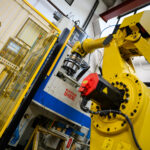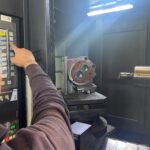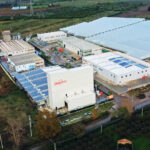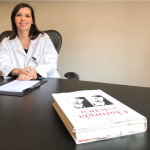Many research projects in the pipeline to help achieve carbon neutrality targets, a newco at the forefront of the energy efficiency sector in partnership with Q8, important projects in new markets such as agrifood and aerospace, and now yet another challenge: the launch of a startup dedicated to the creation of highly innovative software solutions Energy Communities. CEO Vito Grassi tells us the ‘recipe’ for making a company like Graded competitive in Italy and in international markets.

Dr Grassi, let’s start at the end: the birth of this new start-up. From what needs was it dictated?
This new start-up is called ‘Janus’ after the Roman goddess with two faces: one anchored to the company’s history, its DNA, and the experience it has gained so far, and the other turned towards innovation and the future. Experience and innovation walk side by side, in the sign of continuity. ‘Janus’ is also the name of a satellite of Saturn and is consistent with the ‘Orbit Graded’ project, which is enriched by this new start-up. The objective? To reinforce specific branches of activity in the orbit of a company that boasts almost 70 years of history and which, in order to remain competitive in the market, has no choice but to innovate, innovate, innovate. We are not stopping there, however. Our goal is even more ambitious.
And what is your goal?
We want to help the young people trained in Naples by offering them job opportunities on par with, if not superior to, those offered by the international market today, both in terms of quality and recognition of merit. A real consolidation of our professional skills to keep them anchored to the territory, whose competitive development and recovery of social and skills gaps with the rest of the country we care about. An action that, if it yields the desired results, could also trigger the desire to ‘return home’ for all those who already enrich other territories. Janus is ready to hire the first 4-5 people right away, setting a fast track for the so-called ‘returning brains’. We want to make our small contribution so that the know-how and potential that Naples is able to express can be consolidated and no longer dispersed. This is an immediate and concrete contribution that reminds us of our social responsibility as a company and our corporate culture, raising the offer before ‘ad hoc’ instruments can be organised from outside.
Already betting on young brains?
Since the aim is precisely to give selected, competent young people precise roles and responsibilities, the newly-established start-up is led by a young man, a former Digita Academy student, engineer Gennaro Ardolino, who already holds the roles of CISO and Digital Innovation manager at Graded.The governance scheme we have chosen is a three-member board of directors, where CEO Ardolino will be in the company of Ludovica Landi, our COO, and Fabrizia Grassi, already on the board of Graded.With Janus we immediately started in Open Innovation mode with an initial hackathon aimed at students and young developers to design a digital platform capable of managing Renewable Energy Communities.
On the energy efficiency front, Graded also recently established a newco in partnership with Q8 Quasar. What is it?
The newco is called My Energy Q8: Graded joins the Q8 Quaser network with the aim of supporting the way companies manage and optimise energy consumption in their business operations.The aim is to operationally support a group of Q8’s importance in the challenge of environmental and energy transition and in achieving the SDGs goals as quickly as possible.Meanwhile, research continues on the hydrogen front and other renewable energy sources…We have taken up the hydrogen challenge as early as 2021 by launching two pilot plants to be developed within as many research projects: one in Campania, within ‘Green Farm’, in collaboration with the Department of Agriculture of the Federico II University, the other in Dubai in partnership with Sharjah University. Our goal is to use these micro-cogeneration plants, study their environmental benefits, and replicate the technology on a large scale, so that we can achieve carbon neutrality targets in line, here too, with the SDGs. An ambitious goal that can be achieved more easily through a partnership model between universities, public bodies, research centres and companies, based on our many experiences.






















































